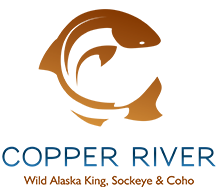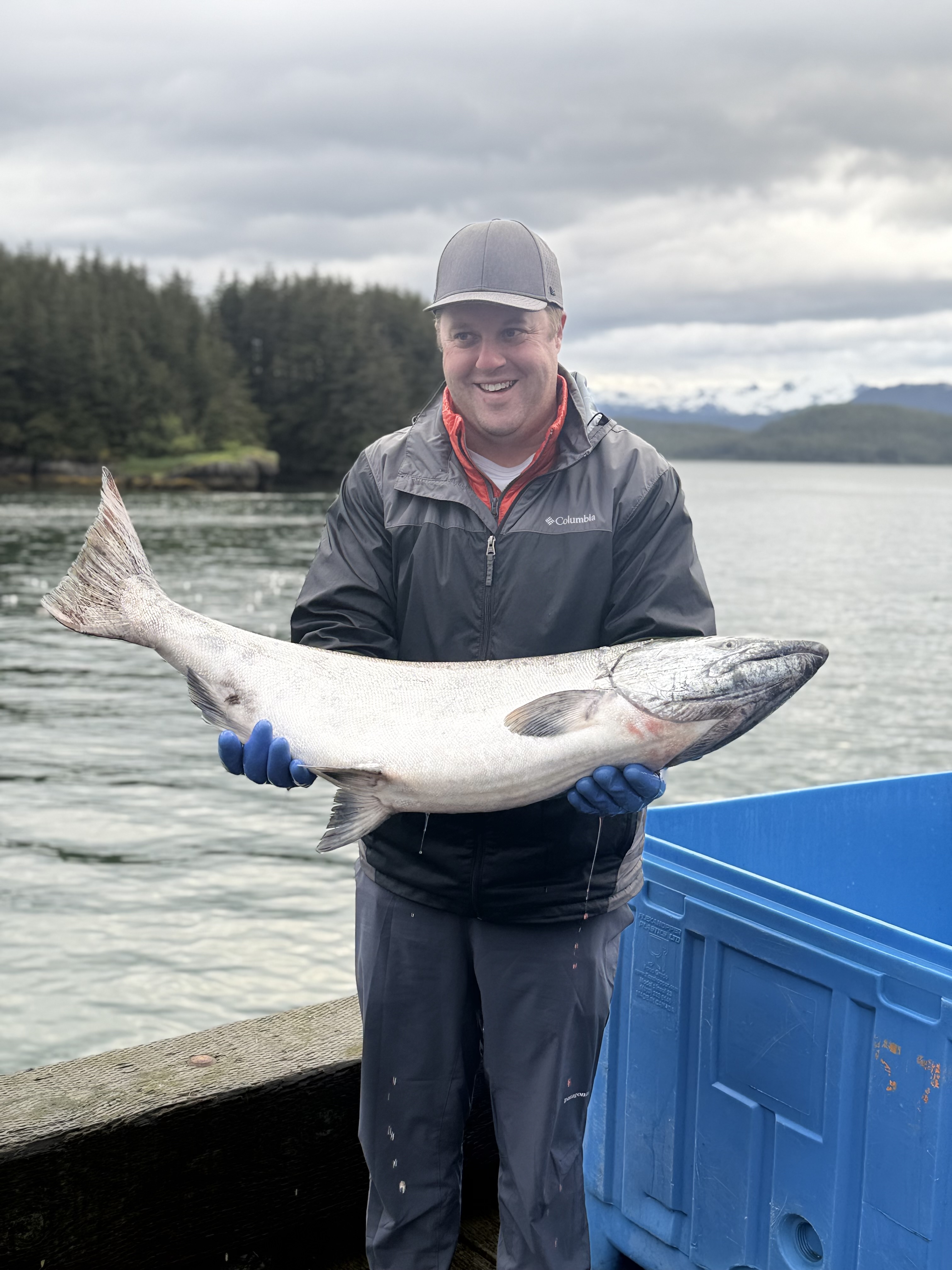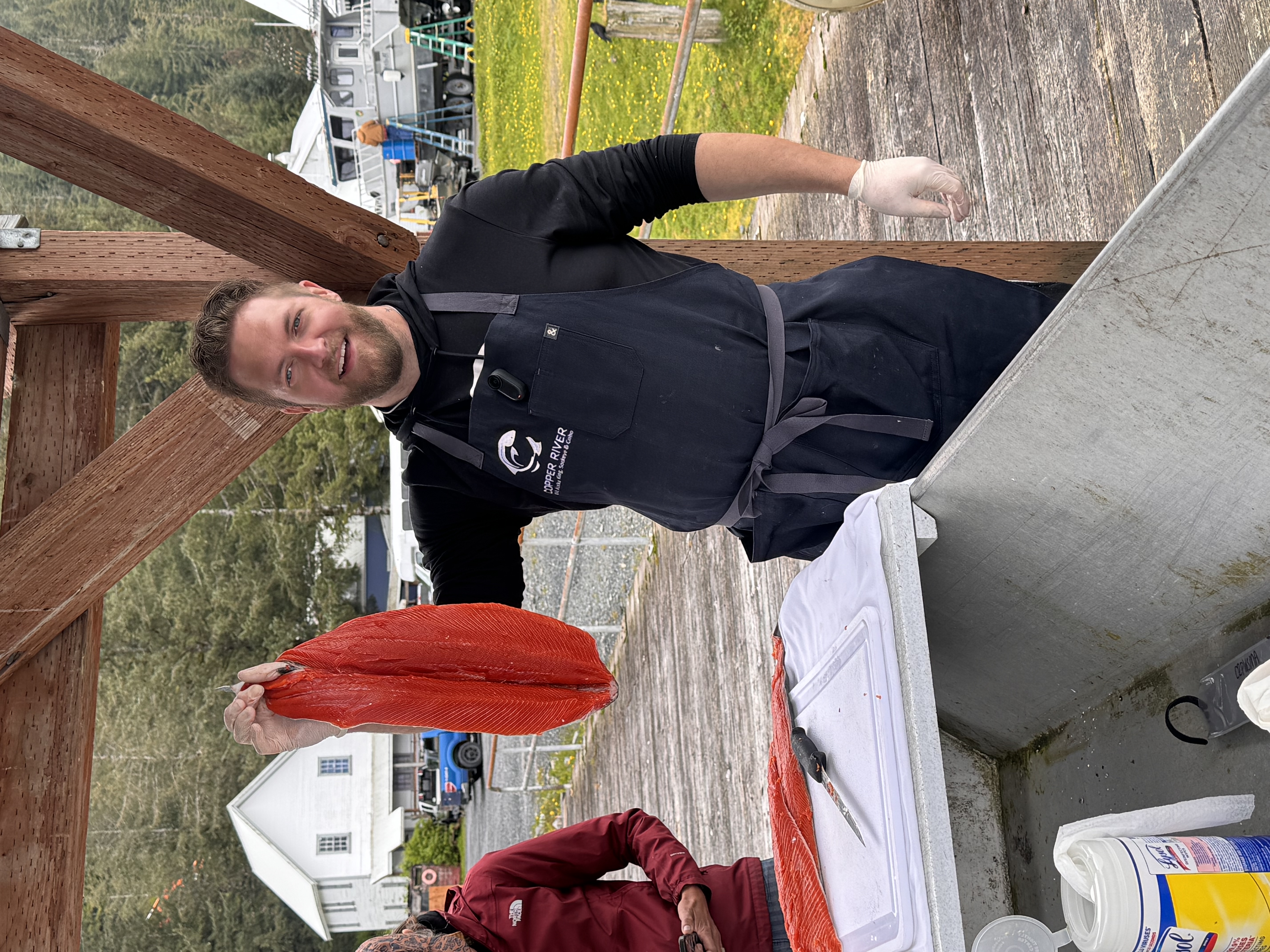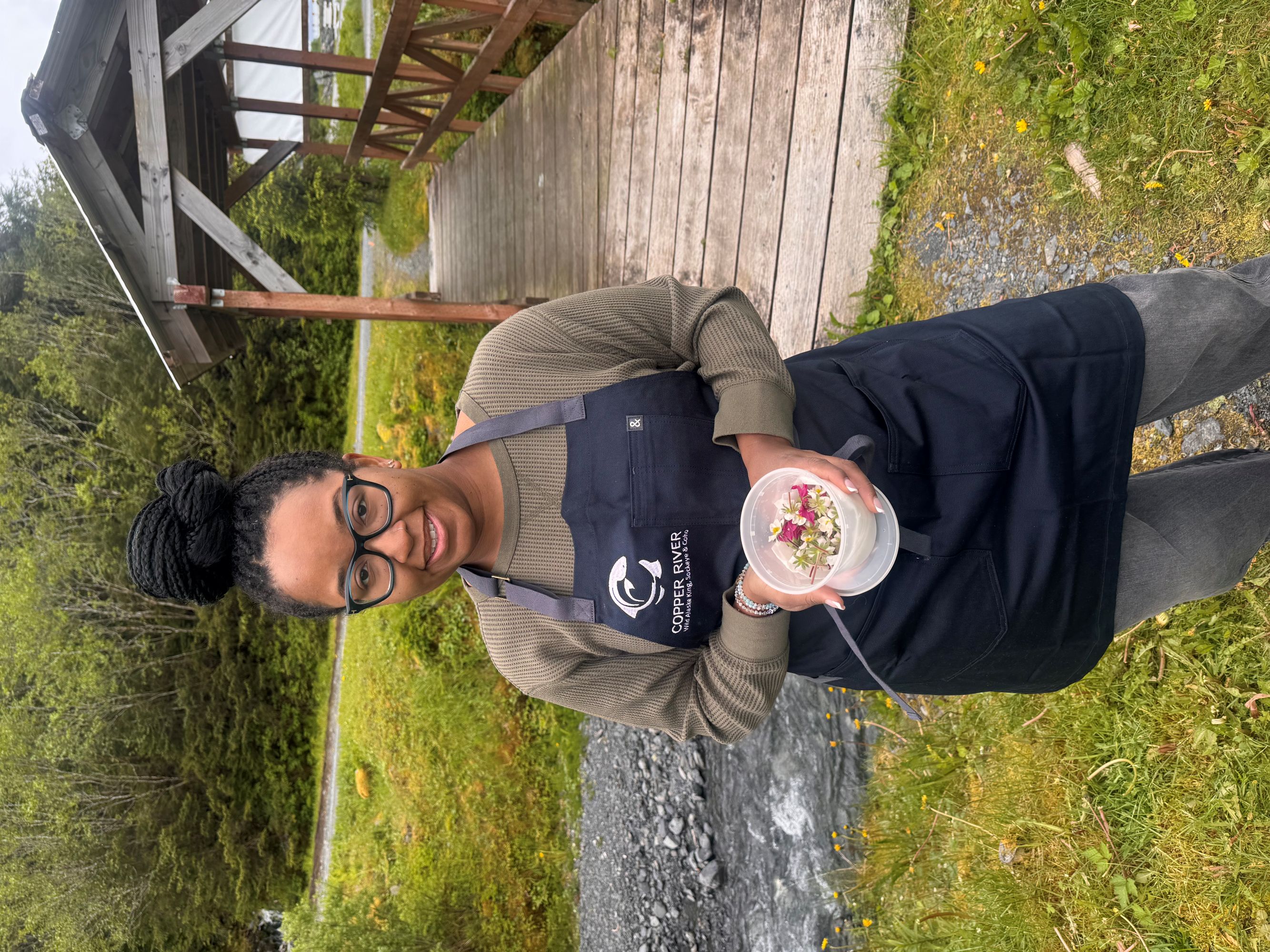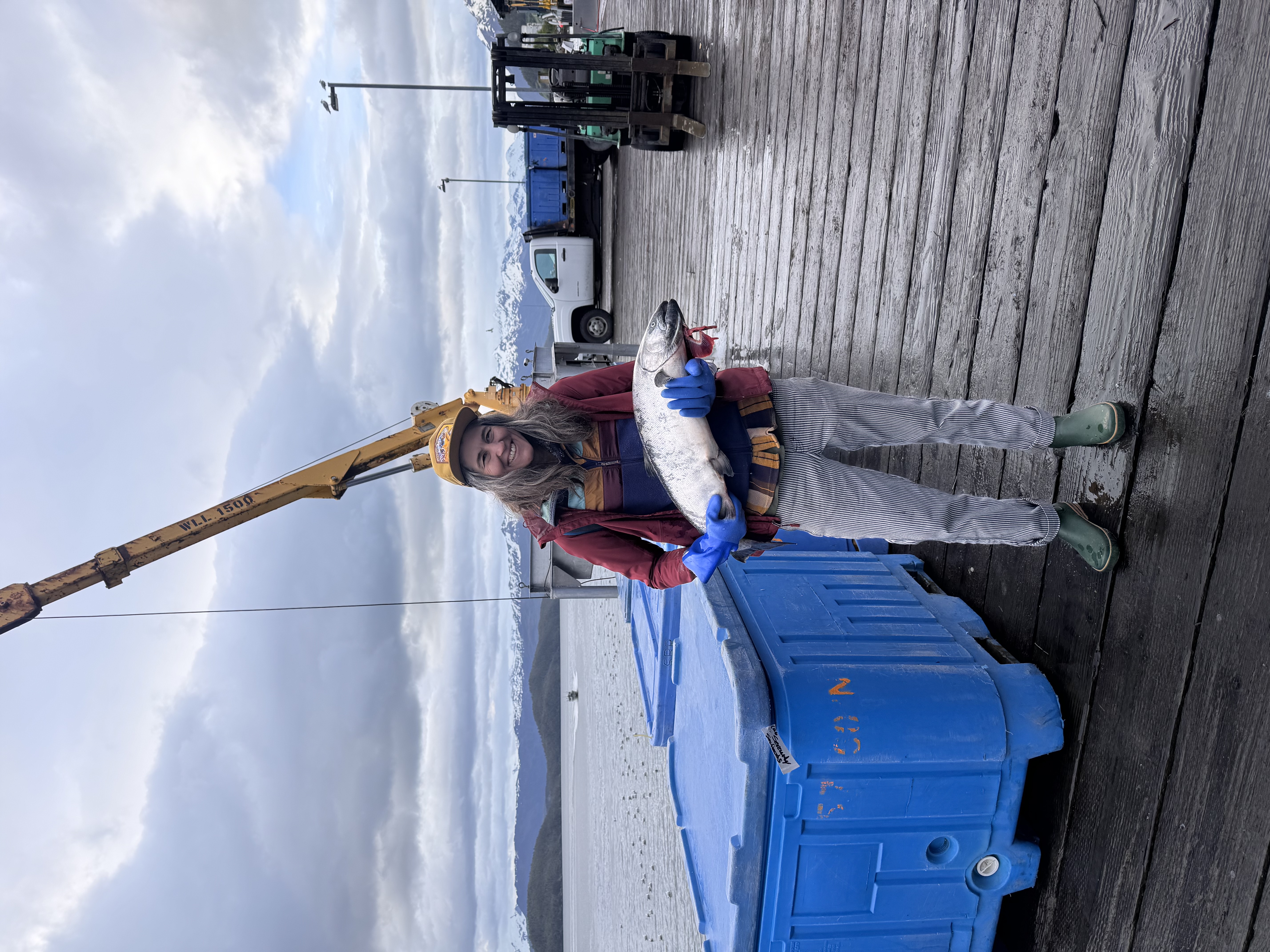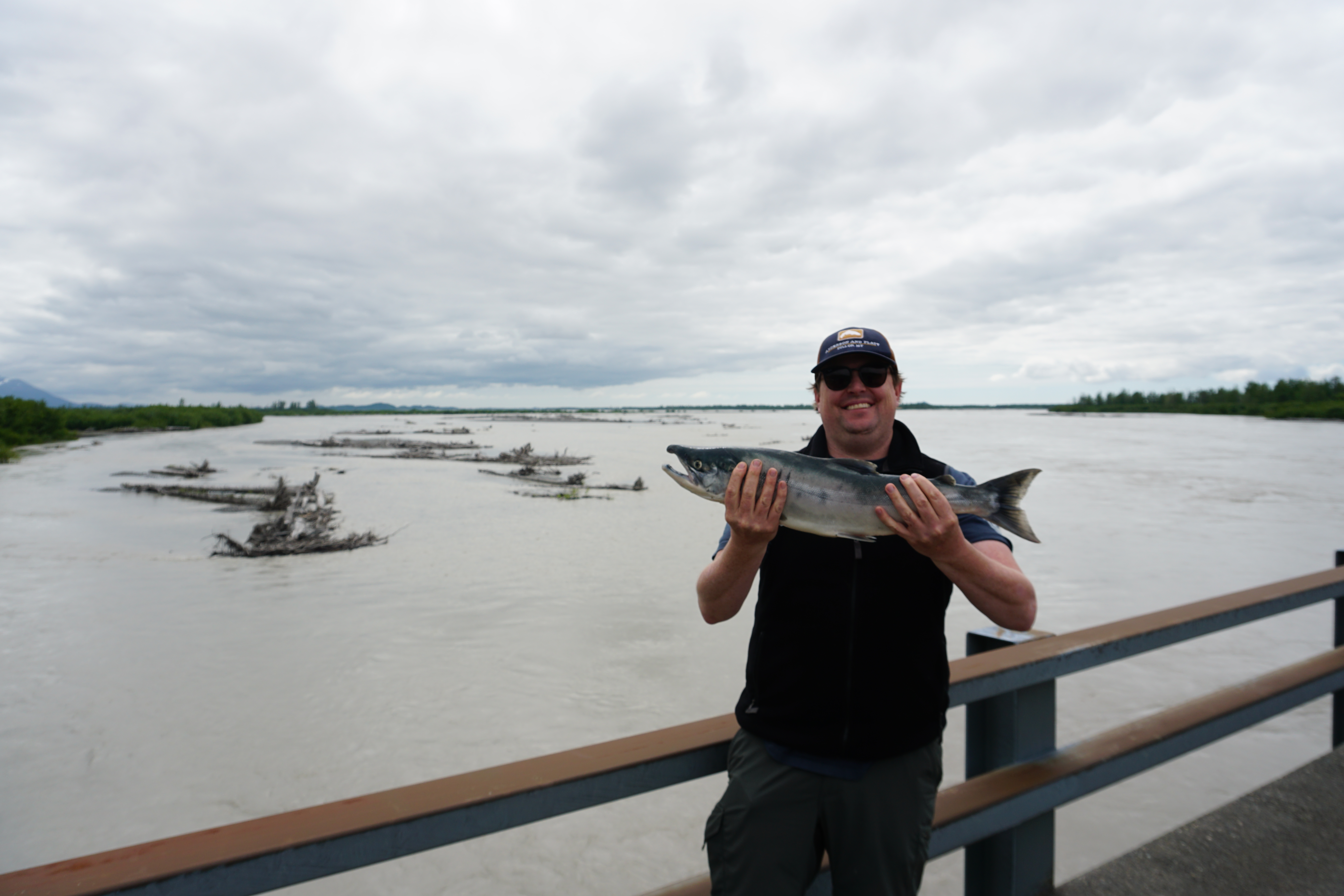By using our website, you agree to the use of cookies as described in our Cookie Policy
Chef Thoughts with Michael Diaz de Leon
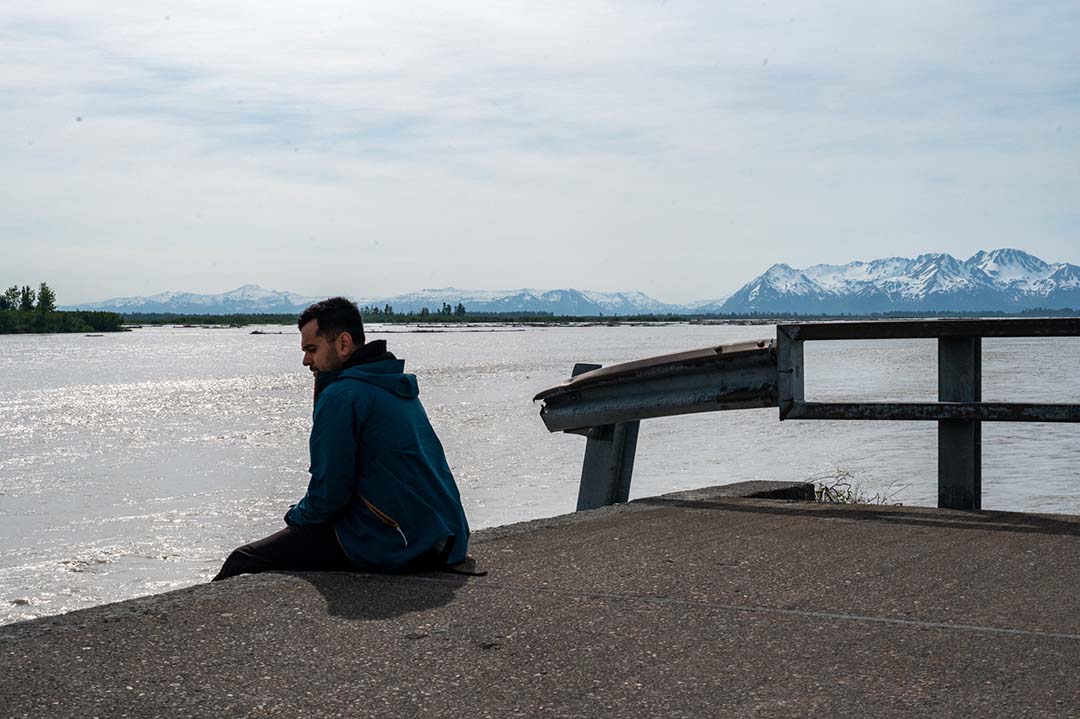
This past week, we re-connected with Chef Michael Diaz de Leon of Bruto Denver to reflect on his time spent with us here in Cordova, recalling what he learned and how it has changed his perspective.
During our conversation, we asked him a series of questions, aiming to learn a bit about his thoughts. Read on for his delightfully insightful answers.
Do you feel you gained a deeper appreciation for or understanding of the process of bringing salmon to the world? What aspects of this process stuck out most to you?"
The whole thing really; I didn’t realize how big the operation was. It’s such a small operation, but it's big in the impact it has on the planet, in regards to sustainability and how you guys are taking care of the fish.
It was really great to see that aspect of it, start to finish. From the net mending to the boats to 60N, everything about the process was super inspirational to see. To be able to come back and tell your story and be able to support such a beautiful salmon and community, I think it was really cool for us to do.
It was really great to see that aspect of it, start to finish. From the net mending to the boats to 60N, everything about the process was super inspirational to see. To be able to come back and tell your story and be able to support such a beautiful salmon and community, I think it was really cool for us to do.
It gives you a deeper appreciation when you pick up a salmon and say ‘where is this coming from’, you know? I know exactly where it’s coming from, I know who fished it, I know who processed it, I know who packaged it, I know how it got to the grocery store, I know how fresh it is. Everything about it was super insightful.
Do you believe that your trip to Alaska has shaped how you think about sourcing protein, or food in general, even beyond just salmon?
Yeah, my whole work besides being a chef is to understand food systems and understand sustainability, and how we approach food. This has definitely inspired so much of my work, to keep learning, to keep exploring, to keep asking questions. To keep understanding how sustainability works with the planet. As a chef, for me, it’s super important to spread that gospel.
So yeah, it’s definitely lit a fire under my ass to keep doing the work. I’m already looking at other things, like looking at local bison farmers and seeing how they’re growing their herd; things like that. For me now, if I don’t feel comfortable serving a product, I’m not going to put it on my plate. If I don’t have the story of or a relationship with the product, I’m not going to put it on the plate.
What was the most surprising aspect of your time in Alaska?
Everything from the people to the town; you guys were all great. It’s just so great to see that you guys all, in some small way, work together to make sure the salmon is the star of the show. The whole town is sustained by fishing. Everybody I met was super gracious and inviting, and told their story and opened their doors to us. That was really humbling and really nice to see, good people out there doing the good work. It definitely inspired me to do better. You guys all work together in a way to bring salmon to the world, it was really fun to see.
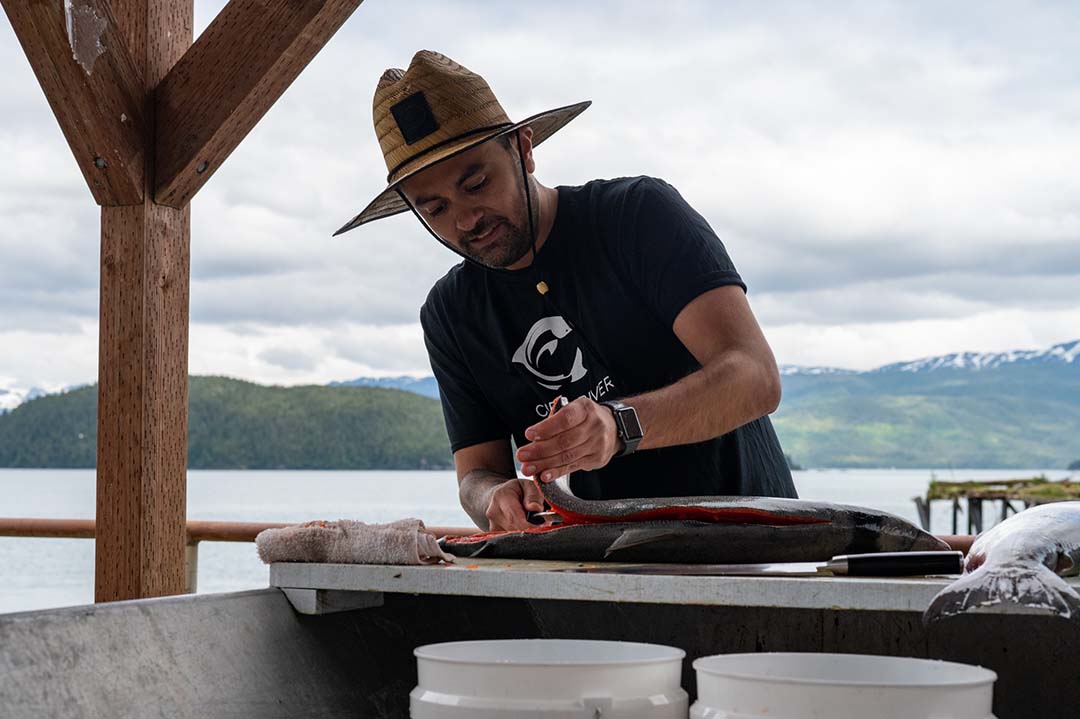
How has your comfort level with serving wild salmon changed?
It’s gone through the roof. Wild salmon is delicious, it’s nutritious, it’s so flavorful and fresh; especially knowing where it’s coming from and how it’s fished and how it’s taken care of, I know that that fish was taken care of better than me. That fish is taken care of better than my wife takes care of me (a “wow” from the background, presumably said wife, followed by assurance of joking). But yeah, it’s fun. It’s really great to know how it all works.
From what you learned, do you feel that Copper River Salmon is a truly superior product? Or is it just marketing?
I think it’s a superior fish. Just the fact that it’s wild salmon; you don’t really get that anymore. Not only that, but the color of the fish, the freshness of the fish, the people that are actually making sure that fish is taken care of before it gets to the consumer, how do you not see that that is superior? And if you don’t have the marketing behind it, how are you going to let people know that it is superior? It goes hand-in-hand, the marketing and the product. How are you going to promote it if not through storytelling.
“Yeah, I suppose marketing is sort of an all-encompassing word, like you said, I like to think about it as storytelling.”
It is storytelling; I consider myself a storyteller. Me, as a chef, if I don’t market myself, if I don’t market my product or my work, how are people going to know about me and the things that I’m doing? If I just stay in a kitchen and put my head down and don’t market myself, and put myself out there, to let people know what I’m trying to do and accomplish, how does that work? I think it’s super important that you tell a story, especially in the time and age we’re living in, people gravitate towards stories.
What were your impressions of the efforts put towards sustainability of this wild resource?
The efforts are there; you guys literally have a whole department just tracking fish and understanding their travel and how they spawn and make their way back into the waters, and how you’re fishing. It’s controlled by the government; overfishing is definitely a big thing, and you guys have a pretty great system, and that’s the story that I’ve been telling. It’s really really great to see.
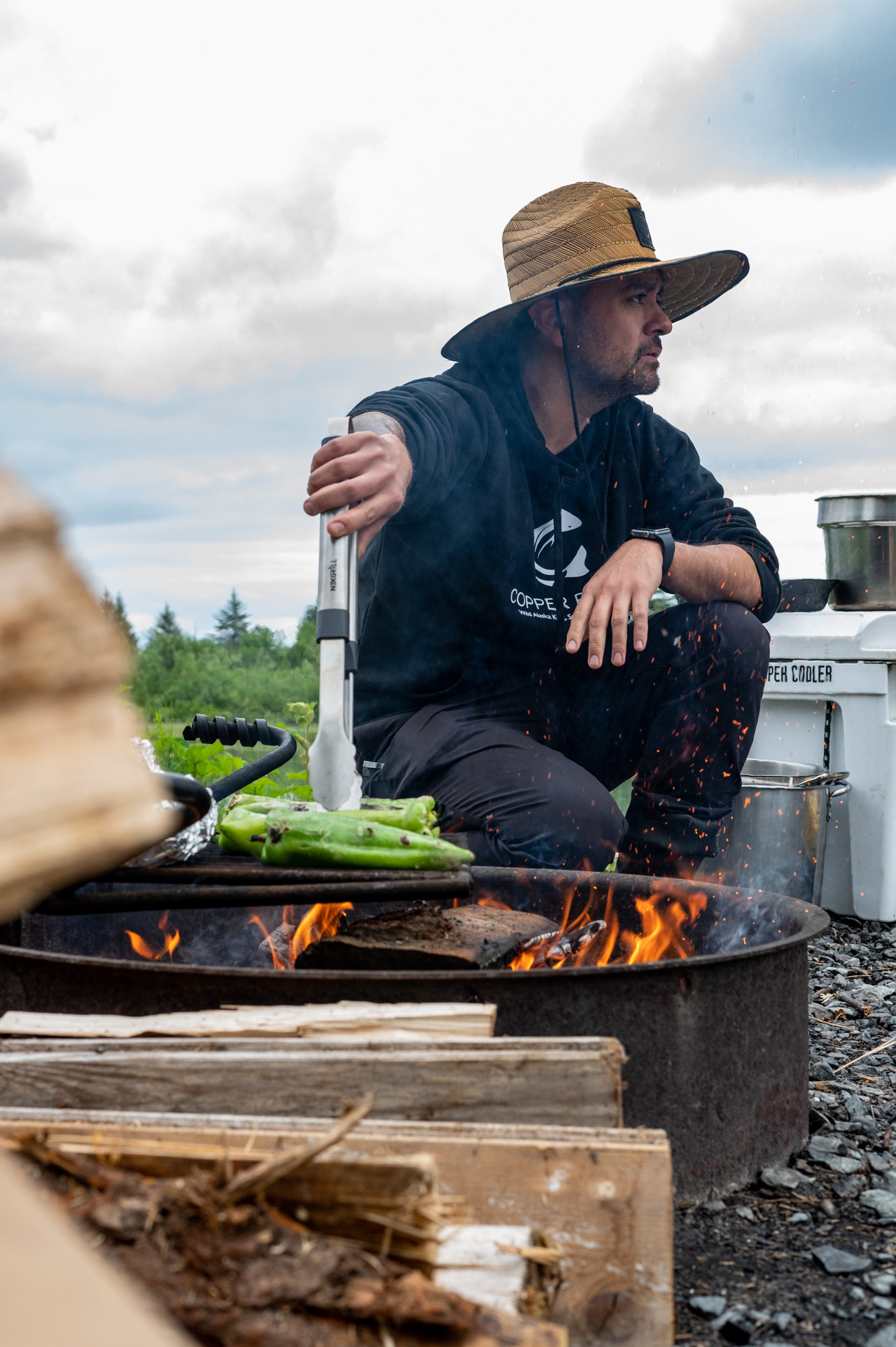
‹ Back
